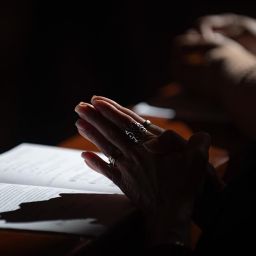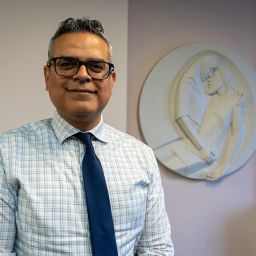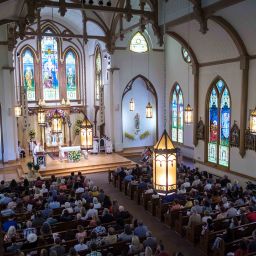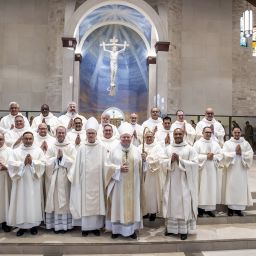By Father John Bayer, O. Cist.
Special to The Texas Catholic
I recently read a book about discernment and the spiritual life that I’d recommend to just about anyone but especially to the young: Stacey Sumereau, “Adventure Awaits: How to Interpret Your Desires and Hear God’s Voice” (Ave Maria Press, 2025). It is short and divided into bite-sized sections filled with stories, explanations, and spiritual exercises. It is written in a friendly style and rooted in Catholic faith.
I like it especially because the author nails it on some major lessons in discernment. There are two I want to highlight here.
First, as a vocations director I’ve often heard people looking for signs of God’s will in order to make a decision. In principle, that can be good. God wants us to know his will (at least part of it), and he could certainly send a sign. Moreover, Scripture has examples of people righteously asking God for a sign, like Gideon in Judges 6. However, in my experience (first of my own heart but also after listening to others) the desire for a sign could be an attempt to evade responsibility for making a decision in faith. It could be an anxious yearning for the security of feeling “certain” that we are not making a mistake. Such a focus on our own feelings leads us, ultimately, to miss out on what God’s will is really about — which is not our execution of tasks on his behalf but rather ourselves. God is a communicator greater than we can imagine, and he might sometimes use signs. But sometimes he might not, since what he ultimately wants to communicate is a shared life. He wants to communicate himself, and not merely mission orders; and he wants to enable us to give ourselves to him. That means he might have good reason to withhold clear signs, at least if they would lead us to focus more on our own anxiety or activity than on simply listening and dwelling with him.
Stacey Sumereau puts it this way, “If God told you exactly what the plan was, you’d have perfect certainty it’d work out, right? (…) However, most of the time God doesn’t intervene in our lives this way. As I’ve said many times in this book, he speaks almost exclusively to me about my relationship with him, not ‘the plan’ for my life. It makes sense, since God isn’t a to-do list. God is love” (115).
If we want to hear God’s voice, we will have to allow him to talk about what he wants to talk about. And oftentimes, he just isn’t interested in giving us a sneak peek into our futures but rather in talking about the moment-by-moment movement of our hearts. We should learn to listen, and trust that this habit of listening will enable us to hear him when he decides to reveal something specific about his plan for our lives.
A second insight from this book concerns the importance of dreaming. In my experience, people can be afraid to dream. Somehow we get the sense that we are prideful or presumptuous if we allow ourselves to imagine a future in which we accomplish great things.
But there is a major difference between peacefully dreaming and pridefully entertaining delusions of grandeur. If we dream with detachment, and make no demands upon others or God, then we have a chance to hear our hearts and thus to discover what is deeply important to us. If we start to become attached to what we imagine, then we risk cultivating a resistance to reality — to God’s will. We could be fostering a desire to become our own masters and center everything around our pride and sense of achievement.
But that’s not the same thing as dreaming. In fact, dreaming is a sign of a healthy spiritual child. Don’t we know how good it is when children have the confidence to shout their plans when asked what they want to become? “Inventor!” “Professional basketball player!” “President!” Of course, we don’t know how their dreams will evolve or what they will actually become, but we do know it is good — even vital — for them to desire greatness. Imagine a six-year-old saying, “Well, I don’t want to overestimate my abilities or importance in this world, and so I’d rather just accept whatever mediocrity comes my way. As long as I am average, I suppose I will not feel guilty or be too unhappy.” How sad!
It is important to know our desires. Of course, it is essential to allow God to purify them as well — and you know he will! Still, it would be a tragedy if, for fear of seeing ourselves in need of purification, we refused to see ourselves at all. As Stacey Sumereau puts it with regard to her own discernment, “I was learning that it’s important not to censor our dreams. After all, my Broadway dreams weren’t holy, but they pointed the way to something that was holy: a passion for community and furthering God’s kingdom. If I edited my dreams before they ever had a chance even to be written down, how could God work with those desires? No, honesty was the way to go” (75).
Father John Bayer, O. Cist., is a monk at the Cistercian Abbey of Our Lady of Dallas in Irving.
Cutline for featured image: Pictured are saint statues in St. Peter’s Square. (AMY WHITE/The Texas Catholic)















